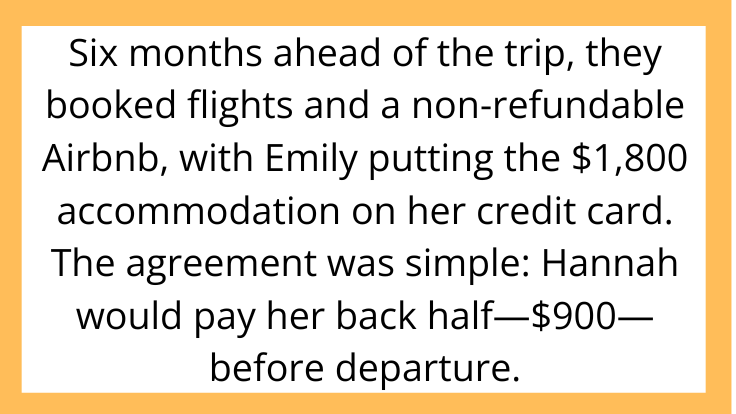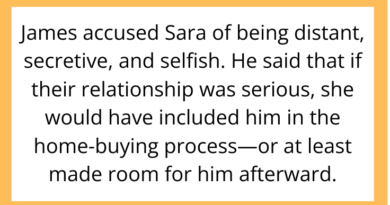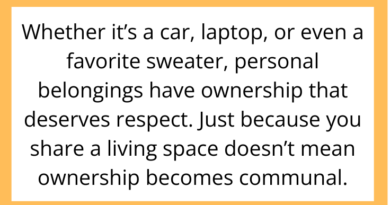AITAH for Asking My Best Friend to Pay Me Back After She Didn’t Show Up on Our Vacation?
Vacations are supposed to be a time to unwind, make memories, and strengthen friendships. But what happens when a last-minute no-show turns your dream getaway into an awkward financial standoff?
In today’s AITAH scenario, we dive into a story that’s left thousands debating where the line falls between generosity and taking advantage.
Let’s get into it.
The Situation: Best Friends and a Long-Awaited Trip

The original poster—let’s call her Emily—is a 28-year-old marketing professional. For over a year, she and her best friend, Hannah, had been planning a weeklong vacation in Greece. Both were excited to split costs to make it more affordable.
Six months ahead of the trip, they booked flights and a non-refundable Airbnb, with Emily putting the $1,800 accommodation on her credit card. The agreement was simple: Hannah would pay her back half—$900—before departure.
Everything was set. They coordinated outfits, planned excursions, and even created a shared Pinterest board of must-see sights.
The Last-Minute Change of Plans

Two days before their departure, Hannah called Emily in tears. She said she couldn’t go because she had “an overwhelming feeling” she needed to stay home. She claimed it wasn’t a health emergency but rather anxiety about leaving the country.
Emily was understanding at first. She assured Hannah she’d be okay and even offered to help her look for a therapist after she returned. But she also explained that the Airbnb was non-refundable, and she’d still be traveling as planned.
When Emily returned, she sent Hannah a polite Venmo request for the agreed-upon $900.
Hannah was shocked. She texted:
“You expect me to pay for a trip I didn’t take? I thought you’d be more compassionate.”
Emily tried to explain that she couldn’t afford to cover the entire stay alone. But Hannah insisted it was unfair and said Emily was “putting money above friendship.”
Feeling hurt, Emily turned to Reddit: Am I the villain for asking my best friend to pay her share?
Why Emily Feels Justified

Many in the r/AITAH community immediately sided with Emily. Here’s why:
-
Clear Agreement: Hannah agreed multiple times to split the cost, fully aware the reservation was non-refundable.
-
Last-Minute Cancellation: If this were a health emergency, most agreed Emily could show leniency. But Hannah herself admitted she simply didn’t feel like going.
-
Financial Responsibility: When you commit to shared expenses, you’re still responsible even if you change your mind.
One top commenter summed it up:
“NTA. You didn’t force her to cancel. She made a choice, and choices have consequences.”
Why Hannah Feels Betrayed

However, a few people empathized with Hannah’s side, pointing out:
-
Mental Health Matters: Anxiety can be debilitating, and it’s not always predictable or rational.
-
Friendship Over Money: Some felt Emily’s quick request for repayment could have waited, given Hannah’s distress.
-
Unexpected Circumstances: Plans can change, and true friends give grace when things fall apart.
Still, most agreed that empathy doesn’t mean absorbing someone else’s financial responsibility.
The Bigger Picture: Money and Friendship Don’t Always Mix

This situation touches on a larger truth: when friends mix money and plans, there’s always a risk of resentment.
Clear expectations—and documented agreements—can help avoid these conflicts. But even then, emotions can complicate things.
In this case, Emily felt she had no choice but to recoup her losses. Hannah felt blindsided and judged. Neither walked away feeling good.
Could There Have Been a Compromise?

Some Redditors suggested middle-ground solutions:
-
Payment Plan: Emily could have offered Hannah the option to pay in installments.
-
Partial Reimbursement: They could have split the cost differently (e.g., Hannah covers only her portion of the nights Emily couldn’t rebook).
-
Insurance Next Time: Travel insurance might have softened the blow in case of last-minute cancellations.
While those ideas might have helped, they require willingness on both sides to communicate openly and meet halfway.The Verdict: Setting Boundaries Doesn’t Make You the Villain
At the end of the day, Emily didn’t cause Hannah’s anxiety. She didn’t force her to stay home. She simply enforced the agreement they made together.
Many agreed that while compassion matters, so does accountability.
You can care about someone’s feelings and still expect them to honor commitments.
Takeaway: Protect Yourself—and Your Friendships

This AITAH story is a reminder that even the best of friendships can crack under the strain of money and expectations. If you’re planning a trip with someone, consider these tips:
-
Always get agreements in writing, even if it feels awkward.
-
Discuss what happens if someone cancels last minute.
-
Look into refundable options or travel insurance.
-
Be clear about boundaries up front.



